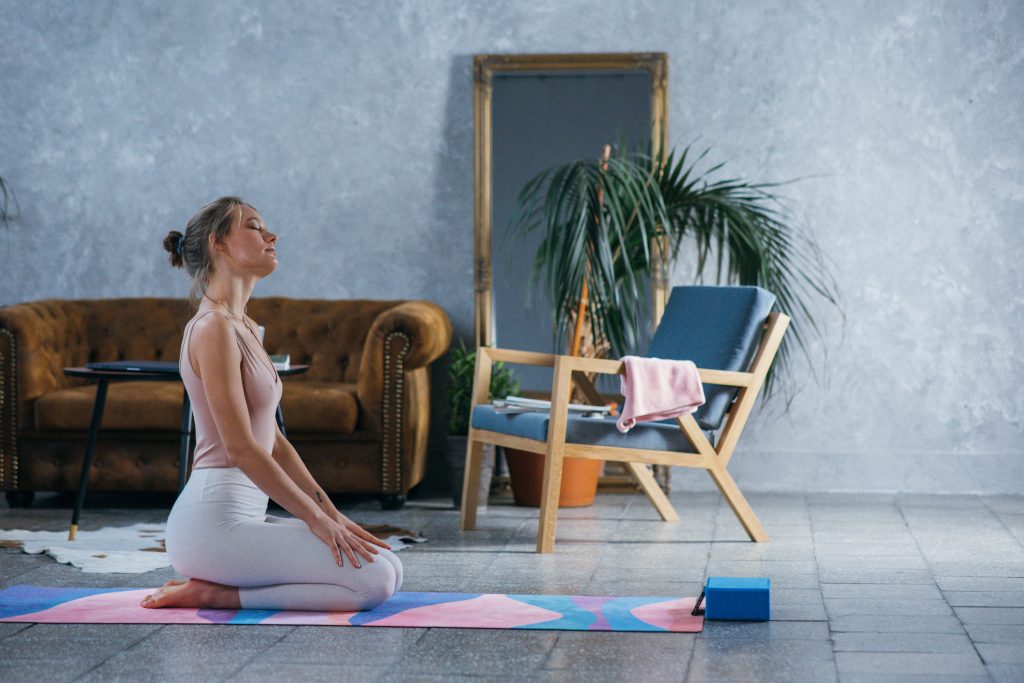Learn how practicing yoga can help you overcome insomnia and improve your sleep quality.
Discover the Benefits of Yoga for Insomnia
Tossing and turning all night, unable to find a peaceful slumber? If you’re experiencing the frustration of insomnia, then it’s time to give yoga a try! Yoga is not only a fantastic way to get your body moving and flexible, but it also holds incredible benefits for improving your sleep quality. So, let’s dive into the world of yoga and uncover the secrets it holds for those elusive Zzzs.
Understanding Insomnia: Causes and Effects

Sleepless nights have a devilish way of wreaking havoc on our lives. But what exactly causes insomnia, and how does it affect us? Understanding these answers is the first step towards finding relief.
Insomnia can be triggered by various factors, such as stress, anxiety, poor sleep habits, or even certain medications. When we don’t get enough sleep, it can lead to daytime fatigue, difficulty concentrating, and a general grumpiness that could put the Incredible Hulk to shame.
But let’s dive deeper into the science behind sleep disorders and uncover the fascinating details behind why some of us struggle to catch those precious Zzzs.
The Science Behind Sleep Disorders
Plunging into the realm of sleep disorders, let’s uncover the fascinating science behind why some of us struggle to catch those precious Zzzs. It all boils down to our internal sleep-wake cycle, also known as the circadian rhythm. This rhythm is regulated by a hormone called melatonin.
But sometimes, our bustling lives and gadgets with screens can throw this delicate balance out of whack. Research suggests that the blue light emitted by electronic devices suppresses melatonin production, making it harder for us to fall asleep. Talk about a modern-day conundrum!
Our bodies are finely tuned machines, and any disruption to our sleep-wake cycle can have significant consequences. The circadian rhythm not only affects our ability to fall asleep but also influences the quality of our sleep. When this rhythm is disrupted, it can lead to fragmented sleep patterns, leaving us feeling groggy and unrefreshed in the morning.
Furthermore, the science behind sleep disorders goes beyond just melatonin. Other factors, such as the release of stress hormones like cortisol, play a role in keeping us awake at night. Our busy minds, filled with worries and racing thoughts, can also prevent us from drifting off into dreamland.
How Insomnia Impacts Your Life
Insomnia is like an unwelcome guest that overstays its welcome. From work performance to relationships, its effects ripple through every aspect of our lives. The lack of proper rest can lead to decreased productivity, strained relationships, and even compromised physical health.
Without sufficient sleep, our immune system takes a hit, making us more susceptible to illnesses, and our emotional well-being can take a nosedive. Nobody wants to live in a constant state of exhaustion—we have sitcoms and parties to attend, after all!
But the impact of insomnia goes beyond just feeling tired and irritable. It can affect our cognitive abilities, making it harder to concentrate, remember information, and make decisions. This can have a significant impact on our work performance and academic achievements.
Furthermore, the effects of insomnia can extend to our mental health. Chronic sleep deprivation has been linked to an increased risk of developing mental health disorders such as depression and anxiety. The constant struggle to fall asleep and stay asleep can take a toll on our emotional well-being, leading to mood swings, irritability, and a general sense of dissatisfaction with life.
It’s important to recognize the far-reaching effects of insomnia and take steps to address it. Whether it’s implementing healthy sleep habits, seeking therapy, or exploring medication options, finding a solution to insomnia can greatly improve our overall quality of life.
The Connection Between Yoga and Sleep
Now that we’ve understood the woes of insomnia, let’s explore how yoga can be the knight in shining armor that rescues us from sleepless nights. Yoga goes beyond the realms of flexibility and strength; it can be a game-changer when it comes to relaxation and stress relief.
When we think of yoga, we often envision a serene yoga studio, surrounded by calming aromas, soft music, and the gentle guidance of an instructor. Ahhh, bliss! But what exactly happens during a yoga session that helps us achieve such a state of tranquility?
Yoga helps us tap into our parasympathetic nervous system, which is responsible for putting the brakes on our body’s stress response. Through various poses, deep breathing exercises, and meditation, yoga helps us unwind, quiet our racing minds, and release tension from our bodies. It’s like hitting the snooze button on our worries and inviting peacefulness to wash over us.
But the benefits of yoga don’t stop there. Not only does it help us relax, but it also works wonders for regulating our sleep patterns. A study published in the Journal of Alternative and Complementary Medicine found that individuals who practiced yoga experienced improved sleep efficiency and a decrease in sleep disturbances.
So, how exactly does yoga influence our sleep patterns? By incorporating yoga into our routines, we’re cultivating a healthy sleep-wake cycle and training our bodies to recognize and embrace the sweet surrender of slumber. The gentle stretching and relaxation techniques in yoga help prepare our bodies for rest, allowing us to drift off into a deep and rejuvenating sleep.
Imagine ending your day with a calming yoga session, gently easing away the stresses and tensions of the day, and setting the stage for a peaceful night’s sleep. It’s like giving yourself a gift of tranquility and rejuvenation.
So, if you find yourself tossing and turning at night, unable to quiet your mind and find rest, consider incorporating yoga into your routine. Not only will it help you relax and relieve stress, but it will also pave the way for a blissful night of sleep. Say goodbye to sleepless nights and hello to a well-rested and rejuvenated you!
Different Yoga Poses for Better Sleep
Now that we’re fully convinced of yoga’s superpowers for combating insomnia, it’s time to learn some of the incredible poses that can whisk us off to dreamland.
But before we dive into the world of yoga poses for better sleep, let’s take a moment to understand the science behind it. Yoga has been practiced for thousands of years and is known to promote relaxation, reduce stress, and improve overall well-being. When it comes to sleep, yoga helps calm the nervous system, release tension in the body, and quiet the mind, all of which are essential for a restful slumber.
Restorative Yoga Poses for Insomnia
When it’s time to wind down and prepare our bodies for a restful night, restorative yoga poses are our new best friends. From the soothing Child’s Pose to the ultimate relaxation of Savasana (Corpse Pose), these gentle stretches help release tension and bring a sense of calmness to our bodies and minds.
Imagine sinking into Child’s Pose, folding forward and allowing your forehead to rest on the mat. As you breathe deeply, you can feel the tension melting away from your shoulders and back, leaving you feeling lighter and more at ease. It’s like wrapping ourselves in a cozy blanket of serenity.
In Savasana, you lie flat on your back, arms and legs relaxed, as if you were a lifeless corpse (hence the name). This pose is the epitome of relaxation, as you let go of any remaining tension in your body and surrender to the present moment. It’s a moment of pure bliss, where you can let go of the day’s worries and invite tranquility, inch by inch, until your body is at complete peace.
Breathing Techniques in Yoga for Sleep Enhancement
Our breath is a powerful tool that can guide us towards sleep. Incorporating specific breathing techniques into our yoga practice can be a game-changer in our quest for a restful slumber. One such technique is called the 4-7-8 breath.
By inhaling for a count of 4, holding the breath for a count of 7, and exhaling for a count of 8, we’re slowing down our heart rate, signaling to our bodies that it’s time to relax and drift off to sleep. It’s like casting a magical spell that whispers, “Sleep, sleep, sleep.”
Another breathing technique that can help promote sleep is alternate nostril breathing. This technique involves closing one nostril with your finger, inhaling deeply through the open nostril, then closing that nostril and exhaling through the other. This rhythmic breathing pattern helps calm the mind, balance the nervous system, and prepare the body for a peaceful slumber.
So, the next time you find yourself tossing and turning in bed, give these yoga poses and breathing techniques a try. They may just be the missing piece to your sleep puzzle, helping you drift off into a deep and restful sleep.
Incorporating Yoga into Your Nightly Routine
Now that we have our yoga toolkit ready to combat insomnia, let’s explore how to seamlessly incorporate it into our nightly routine.
Creating a Yoga Schedule for Sleep Improvement
Consistency is key when it comes to reaping the rewards of yoga for better sleep. By creating a schedule and committing to a regular practice, we’re carving out dedicated time to focus on our well-being. Whether it’s a daily 10-minute practice or longer sessions a few times a week, finding what works for us is the key to success.
We can gently roll out our mats, knowing that in this sacred time, we’re prioritizing ourselves and giving insomnia a big “Namaste.”
Tips for a Successful Bedtime Yoga Practice
Just like any other new routine, nailing down a bedtime yoga practice can have its challenges. But fear not, for we have some tips to make it a smooth-sailing experience. First and foremost, create a peaceful environment—dim the lights, light a scented candle, or play soft music to set the mood.
Additionally, it’s crucial to listen to our bodies. If a certain pose doesn’t feel right or causes discomfort, we can modify or skip it altogether. The aim is to find joy and relaxation in our practice, not push ourselves beyond our limits. Let’s embrace a gentle, loving approach that says, “Hey body, we’re in this together.”
The Long-Term Benefits of Yoga for Insomnia
By embracing yoga as our trusted sleep companion, we’re not only getting a good night’s rest but also setting ourselves up for long-term benefits that go far beyond the realm of dreamland.

How Regular Yoga Practice Improves Sleep Quality
Yoga is like a lullaby for our bodies, soothing us into a deep and restorative sleep. The regular practice of yoga can improve sleep quality by reducing sleep onset latency (the time it takes to fall asleep) and increasing overall sleep duration.
With better sleep quality, we’re waking up feeling refreshed and ready to tackle the day like a superhero, cape and all. Just call us the Slumber Avenger!
Yoga and Its Impact on Overall Health and Well-being
The benefits of yoga extend far beyond the confines of bedtime. Regular yoga practice has been shown to reduce stress, improve flexibility, and increase strength. It’s like an all-in-one invitation to a healthier, happier life.
By nourishing our bodies and minds through the practice of yoga, we’re investing in our overall well-being. So go ahead, roll out that mat, take that leap, and embrace the beauty of yoga. Your body, mind, and sleep will thank you.







